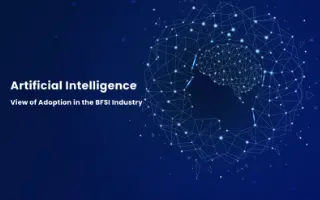Navigating GenAI's Ethical Maze of Innovation and Responsibility

Generative AI (GenAI) has been technology’s golden child this year, with over 75% of top executives excited about its potential. At the same time, ChatGPT, the engine that started this revolution with a massive bang, is seeing a decline in corporate interest, with an increasing number of companies giving it the cold shoulder due to data privacy concerns. While GenAI can unlock trillions of dollars in economic value, it has also opened a Pandora’s box of concerns. But does that mean we should steer clear of the tech? No, not by a long shot. Instead, enterprises must gear up to navigate GenAI’s ethical maze and learn how to balance innovation with responsibility.
The imperative for responsible AI
It’s important to ensure that GenAI is designed, built, and deployed ethically and legally because the stakes if it goes awry are high:
- Bias and discrimination: GenAI responses are more about predicting (and sometimes manufacturing a response) than knowing the exact answer. Based on biased data, its output could have severe repercussions in areas such as legal, hiring, healthcare, banking, and insurance.
- Reputational damage: GenAI is prone to hallucinations and can generate nonsensical, false, and even offensive content. If such responses become public, they can lead to significant reputation and even financial damage for a company. Deepfakes amplify the problem – for instance, one that surfaced about former President Barack Obama – that can be used to spread misinformation and harmful content.
- Security and privacy concerns: GenAI can potentially access and utilize sensitive personal data without consent, leading to privacy violations and unauthorized data exploitation. This is especially concerning in industries like finance and healthcare that handle confidential information.
Balancing innovation and responsibility
A report by Riskconnect found that while “93% of companies recognize the risks associated with using generative AI inside the enterprise, only 9% say they’re prepared to manage the threat.” That’s a high degree of unpreparedness to use a technology that is nearly ubiquitous now! As an organization looking to leverage GenAI to skyrocket innovation and productivity, you must put some guardrails in place to address the risks.
The first step is to build a solid ethical foundation for your business that addresses issues around fairness, transparency, privacy, and accountability. Regularly review and update these guidelines to adapt to evolving technologies and regulations.
You also need to double down on data privacy, putting stringent practices and robust security measures in place to protect sensitive data and prevent data misuse. In addition, regular ethical audits and risk assessments are a must to understand GenAI’s impact on stakeholders and make changes to AI models and practices to mitigate risks.
However, just having guidelines and systems in place is not enough. You need to create awareness about the risks and put explainable AI practices in place to make AI decisions understandable to users and stakeholders. The ultimate aim should be to build a culture of responsibility and accountability where ethical considerations are prioritized and employees and AI systems are held accountable for ethical lapses.
Ultimately, it’s a collective commitment to responsible innovation that will pave the way for a future where technology augments human potential without compromising on ethics.




